| Date | Text | |
|---|---|---|
30 Nov 1911

length of day |
length of day (astronomy) At the beginning of this year an extreme decadal variation in length of day produces mean solar days having a duration of 86400.00389 seconds of Terrestrial Time (or ephemeris time), the slowest rotation of Earth's crust ever to be recorded. |
|
30 Nov 1911

Peter Debye |
Peter Debye (chemistry) Peter Debye derives the T-cubed law for the low temperature heat capacity of a nonmetallic solid. |
|
30 Nov 1911

Casimir Funk |
Casimir Funk (chemistry) Casimir Funk introduces the concept of vitamins. |
|
30 Nov 1911
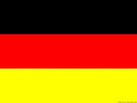
German |
German (chemistry) Frans, a German chemist working for Griesheim-Elektron, patents a means of producing vinyl chloride from acetylene and hydrogen chloride using mercuric chloride as a catalyst. |
|
30 Nov 1911

Fritz Klatte |
Fritz Klatte (chemistry) Fritz Klatte discovers polyvinyl acetate, and applies for a patent for its preparation from acetylene gas although it is not successfully commercialized at this time. |
|
30 Nov 1911
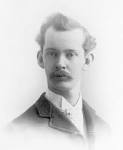
Wilbur Scoville |
Wilbur Scoville (chemistry) Wilbur Scoville devises the Scoville scale for measuring the heat of peppers. |
|
30 Nov 1911

Ghent |
Ghent (history of science) Isis, the journal of the history of science, is founded in Ghent by George Sarton. |
|
30 Nov 1911

Georgius Agricola |
Georgius Agricola (history of science) Georgius Agricola's De re metallica (1556) is first published in an English translation, made by Herbert and Lou Henry Hoover, in London. |
|
30 Nov 1911

Voynich manuscript |
Voynich manuscript (history of science) Voynich manuscript discovered. |
|
30 Nov 1911

Alfred North Whitehead |
Alfred North Whitehead (mathematics) Publication of the 2nd volume of Principia Mathematica by Alfred North Whitehead and Bertrand Russell, one of the most important and seminal works in mathematical logic and philosophy. |
|
30 Nov 1911

Karl F. Sundman |
Karl F. Sundman (mathematics) Karl F. Sundman solves the n-body problem for n=3. |
|
30 Nov 1911
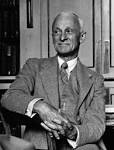
Harvey Cushing |
Harvey Cushing (medicine) Harvey Cushing identifies Cushing's disease, caused by a malfunction of the pituitary gland. |
|
30 Nov 1911
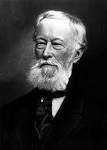
Krupp |
Krupp (metallurgy) Krupp engineers Benno Strauss and Eduard Maurer patent austenitic stainless steel (October 17) and Elwood Haynes (in the United States) and Harry Brearley (of Brown-Firth in Sheffield, England) independently discover martensitic stainless steel alloys. |
|
30 Nov 1911

Max von Laue |
Max von Laue (physics) Max von Laue suggests using crystal lattices to diffract X-rays. |
|
30 Nov 1911
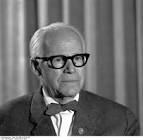
Walter Friedrich |
Walter Friedrich (physics) Walter Friedrich and Paul Knipping diffract X-rays in zinc blende. |
|
30 Nov 1911

Victor Hess |
Victor Hess (physics) Victor Hess discovers that the ionization of air increases with altitude, indicating the existence of cosmic radiation. |
|
30 Nov 1911

Carl Jung |
Carl Jung (psychology) Carl Jung publishes Wandlungen und Symbole der Libido (Psychology of the Unconscious). |
|
30 Nov 1911

Sabina Spielrein |
Sabina Spielrein (psychology) Sabina Spielrein delivers her paper on "Destruction as the Cause of Coming Into Being" to the Vienna Psychoanalytic Society. |
|
30 Nov 1911

Royal Navy |
Royal Navy (technology) The British Royal Navy introduces the director ship gun fire-control system using the Dreyer Table, a mechanical analogue computer. |
|
30 Nov 1911
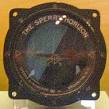
Sperry Corporation |
Sperry Corporation (technology) The Sperry Corporation develops the first gyroscopic autopilot ("gyroscopic stabilizer apparatus") for aviation use. |
|
30 Nov 1911
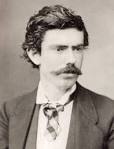
Robert Ridgway |
Robert Ridgway (other s) American ornithologist Robert Ridgway publishes Color Standards and Color Nomenclature. |
|
30 Nov 1911

Eugenics |
Eugenics (other s) First International Congress of Eugenics held in London with the support of Leonard Darwin, Winston Churchill, Auguste Forel, Alexander Graham Bell, Charles Davenport and other prominent scientists. |
|
30 Nov 1911

Paul Zamecnik |
birth Paul Zamecnik November 22 - Paul Zamecnik (died 2009), American scientist playing a central role in the early history of molecular biology. |
|
30 Nov 1911

Genevieve Grotjan Feinstein |
birth Genevieve Grotjan Feinstein Genevieve Grotjan Feinstein (died 2006), American mathematician and cryptanalyst. |
|
01 Jan 1912
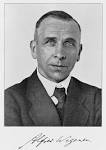
Alfred Wegener |
Alfred Wegener (earth sciences) Alfred Wegener proposes a fully formulated theory of continental drift. |
|
17 Jan 1912
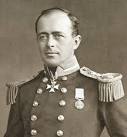
Robert Falcon Scott |
Robert Falcon Scott (exploration) British polar explorer Robert Falcon Scott and a team of four reach the South Pole to find that Amundsen has beaten them to it. They will die on the return journey, just eleven miles from a polar base (March 16–29). |
|
21 Jan 1912

Konrad Emil Bloch |
birth Konrad Emil Bloch Konrad Emil Bloch (died 2000), German-born biochemist, winner of the Nobel Prize in Physiology or Medicine. |
|
27 Jan 1912

Francis Rogallo |
birth Francis Rogallo Francis Rogallo (died 2009), American aeronautical engineer. |
|
30 Jan 1912

Werner Hartmann |
birth Werner Hartmann Werner Hartmann (died 1988), German physicist. |
|
10 Feb 1912
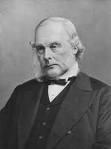
Joseph Lister |
death Joseph Lister Joseph Lister (born 1827), British inventor of antiseptic. |
|
12 Feb 1912

Osborne Reynolds |
death Osborne Reynolds Osborne Reynolds (born 1842), British physicist. |
|
01 Mar 1912

Boris Chertok |
birth Boris Chertok Boris Chertok (died 2011), Russian rocket designer. |
|
07 Mar 1912
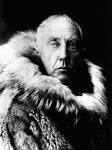
Roald Amundsen |
Roald Amundsen (exploration) Roald Amundsen announces in Hobart that his expedition reached the South Pole on last December 14. |
|
23 Mar 1912
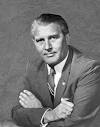
Wernher von Braun |
birth Wernher von Braun Wernher von Braun (died 1977), German-born physicist and engineer. |
|
05 Apr 1912
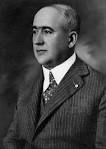
Milutin Milanković |
Milutin Milanković (meteorology) Milutin Milanković’s Contribution to the mathematical theory of climate, his first work in this field, is published in Belgrade. |
|
12 Apr 1912

Clara Barton |
death Clara Barton Died 12 Apr 1912 at age 90 (born 25 Dec 1821). American nurse who was a nursing pioneer during the American Civil War, and was instrumental in the founding of the American Red Cross. At the outbreak of the Civil War, Barton worked as a U.S. Patent Office clerk and collected provisions and medical supplies for the Union Army. Restless with her limited role and undeterred by War Department regulations and prevailing stereotypes, Barton distributed supplies and tended to the wounded and dying despite life-threatening conditions. She became known as “The Angel of the Battlefield.” Almost singlehandedly she founded the American Red Cross, which has provided comfort in times of crisis since 1882. |
|
14 Apr 1912

Sinking of the RMS Titanic |
Sinking of the RMS Titanic (technology) Sinking of the RMS Titanic: The ocean liner RMS Titanic strikes an iceberg and sinks on her maiden voyage from the United Kingdom to the United States. |
|
19 Apr 1912
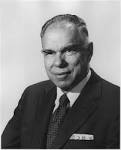
Glenn T. Seaborg |
birth Glenn T. Seaborg Glenn T. Seaborg (died 1999), American physical chemist, winner of the Nobel Prize in Chemistry. |
|
19 May 1912

Eduard Adolf Strasburger |
death Eduard Adolf Strasburger Died 19 May 1912 at age 68 (born 1 Feb 1844). German botanist and plant cytologist who accurately described the embryonic sac in gymnosperms (such as conifers) and angiosperms (flowering plants), along with demonstrating double-fertilization in angiosperms. He recognized that new cell nuclei can only result from the division of other nuclei and showed that the sperm and the egg have half the number of chromosomes found in body cells. He coined the terms cytoplasm for the fluid found in a cell and nucleoplasm (1882) for the fluid found in the nucleus. The upward movement of sap in trees was demonstrated by his research to be physical, rather than a physiological, process. |
|
22 May 1912

Herbert C. Brown |
birth Herbert C. Brown Herbert C. Brown (died 2004), English-born chemist, winner of the Nobel Prize in Chemistry. |
|
29 May 1912

Chien-Shiung Wu |
birth Chien-Shiung Wu Born 29 May 1912; died 16 Feb 1997 at age 84. Chinese-American physicist who provided the first experimental proof (1956) that parity is not conserved in weak subatomic interactions of nuclear beta decay. When two physicists, Tsung-Dao Lee, and Chen Ning Yang proposed that parity was not conserved for weak interactions, Dr. Wu tested the proposal by observing the beta particles given off by cobalt-60. She observed that there is a preferred direction of emission, and that therefore, parity was not conserved for this weak interaction. In other words, Dr. Wu was able to prove that identical nuclear particles do not always act alike, and, thereby, disprove, what was then, a widely accepted “law” of nature. |
|
30 May 1912
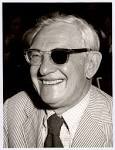
Julius Axelrod |
birth Julius Axelrod Julius Axelrod (died 2004), American biochemist, winner of the Nobel Prize in Physiology or Medicine. |
|
30 May 1912
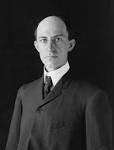
Wilbur Wright |
death Wilbur Wright Wilbur Wright (born 1867), American aviation pioneer. |
|
06 Jun 1912

Novarupta |
Novarupta (earth sciences) The Novarupta volcano on the Alaska Peninsula comes into being through a VEI 6 eruption, the largest this century. |
|
23 Jun 1912
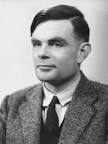
Alan Turing |
birth Alan Turing Alan Turing (died 1954), English computer scientist. |
|
30 Jun 1912

Ludwig Bölkow |
birth Ludwig Bölkow Ludwig Bölkow (died 2003), German aeronautical engineer. |
|
17 Jul 1912

Henri Poincaré |
death Henri Poincaré Henri Poincaré (born 1854), French mathematician. |
|
23 Jul 1912

Horace Donisthorpe |
Horace Donisthorpe (biology) Horace Donisthorpe first discovers Anergates atratulus in the New Forest, England. |
|
07 Aug 1912
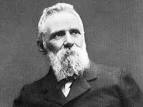
François-Alphonse Forel |
death François-Alphonse Forel François-Alphonse Forel (born 1841), Swiss pioneer of limnology. |
|
11 Aug 1912
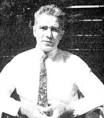
Norman Levinson |
birth Norman Levinson Norman Levinson (died 1975), American mathematician. |
|
13 Aug 1912
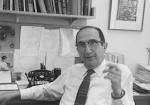
Salvador Luria |
birth Salvador Luria Salvador Luria (died 1991), Italian-born biologist, winner of the Nobel Prize in Physiology or Medicine. |
|
30 Aug 1912

Edward Mills Purcell |
birth Edward Mills Purcell Edward Mills Purcell (died 1997), American physicist, winner of the Nobel Prize in Physics. |
|
04 Sep 1912

William John McGee |
death William John McGee Died 4 Sep 1912 at age 59 (born 17 Apr 1853). American geologist, hydrologist, archaeologist who was noted for his pioneer studies documenting the occurrence of waves of invasions and recessions of ice sheets in North America, thus establishing the complexity of the Great Ice Age. He worked in a number of governmental capacities, including as a director in the U.S. Geological Survey, and was a founder and president of the National Geographic Society. While on the staff of the Bureau of Soils, he organized the landmarkConference of Governors on Conservation of Natural Resources (13-15 May 1908) and has been called the "chief theorist of the conservation movement." As an anthropologist he studied the American Indians and wrote The Seri Indians (1898). |
|
07 Sep 1912

David Packard |
birth David Packard David Packard (died 1996), American electronics engineer. |
|
22 Sep 1912

Herbert Mataré |
birth Herbert Mataré Herbert Mataré (died 2011), German physicist. |
|
01 Oct 1912

Kathleen Ollerenshaw |
birth Kathleen Ollerenshaw Kathleen Ollerenshaw (died 2014), English mathematician. |
|
11 Nov 1912

William Lawrence Bragg |
William Lawrence Bragg (physics) William Lawrence Bragg presents his derivation of Bragg's law for the angles for coherent and incoherent scattering from a crystal lattice. |
|
14 Nov 1912

Tung-Yen Lin |
birth Tung-Yen Lin Tung-Yen Lin (died 2003), Chinese-born civil engineer. |
|
19 Nov 1912

George Emil Palade |
birth George Emil Palade George Emil Palade (died 2008), Romanian-born microbiologist, winner of the Nobel Prize in Physiology or Medicine. |
|
23 Nov 1912

Charles Bourseul |
death Charles Bourseul Charles Bourseul (born 1829), French telegraph engineer. |
|
12 Dec 1912

Ejection seat experiment |
Ejection seat experiment In 1912, the earliest known experiment to produce an airplane ejection seat was conducted by Odolek, an Austrian inventor. The trial took place in Issy-les-Moulineaux. It was not until 1941 that the first successful design was produced by Heinlel, a German company. Made for the He-280, it was powered by compressed air, and accelerated the pilot upwards at between seven-g and nine-g. The He-280 was the first twin-jet engined aircraft and the first jet aircraft to go beyond prototype stage. A test pilot made the first emergency use of the ejection seat on 13 Jan 1943. |
|
18 Dec 1912
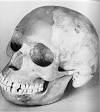
Piltdown Man |
Piltdown Man (paleontology) Skull of "Piltdown Man" presented to the Geological Society of London as the fossilised remains of a previously unknown form of early human. It is revealed to be a hoax in 1953. |
|
24 Dec 1912

Merck |
Merck (chemistry) Merck files patent applications for synthesis of the entactogenic drug MDMA, developed by Anton Köllisch. |